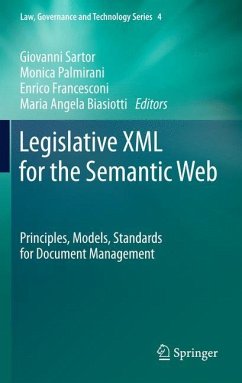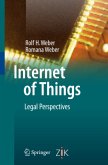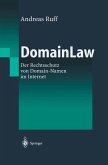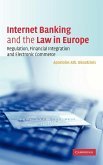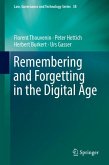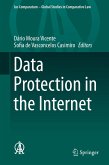This volume examines the basic layers of the standard-based creation and usage of legislation. In particular, it addresses the identification of legislative documents, their structure, the basic metadata and legislative changes. Since mature technologies and established practices are already in place for these layers, a standard-based approach is a necessary aspect of the up-to-date management of legislative resources.
Starting out with an overview of the context for the use of XML standards in legislation, the book next examines the rationale of standard-based management of legislative documents. It goes on to address such issues as naming, the Akoma-Ntoso document model, the contribution of standard-based document management to handling legislative dynamics, meta-standards and interchange standards. The volume concludes with a discussion of semantic resources and a review on systems and projects.
Starting out with an overview of the context for the use of XML standards in legislation, the book next examines the rationale of standard-based management of legislative documents. It goes on to address such issues as naming, the Akoma-Ntoso document model, the contribution of standard-based document management to handling legislative dynamics, meta-standards and interchange standards. The volume concludes with a discussion of semantic resources and a review on systems and projects.

